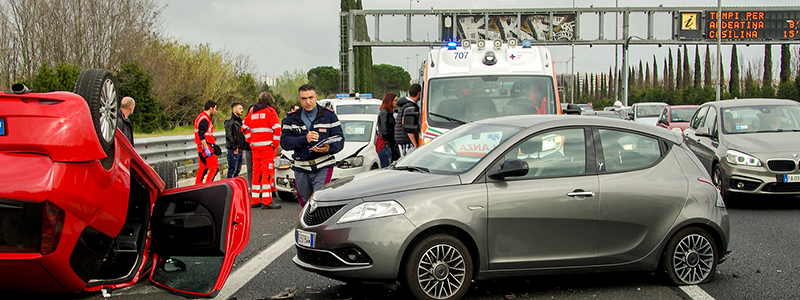In Oregon, the driver that caused the accident is liable for repairs, medical costs, and all other damages that result from the accident. Oregon is an at-fault state.
What Happens if I Get in a Car Accident in Oregon?

If you have been in an accident caused by someone else’s fault, it is important not to settle before speaking to an attorney. Once you sign a settlement you cannot make more claims against the at-fault insurance company, even if you find more costs mounting. If you ultimately realize your injuries are more severe or permanent, or that you need surgery or even extensive physical therapy, if you settled your case you cannot collect any more compensation for your injuries and bills.
Oregon Law states that you must notify the Department of Transportation within 72 hours of the accident. This is regardless of whether you caused it or not. You’ll then provide insurance and other necessary documents.
If you were just an accident in the state of Oregon, don’t wait. Contact an Oregon car accident attorney immediately – Ryan Hilts, Attorney At Law.
Also Read:
Retain a Personal Injury Attorney to Help You Navigate

There are several reasons that an insurance payout from the at-fault driver’s company may not be enough. Oftentimes your losses are more than the maximum amount the insurance policy can pay out. In addition, the insurance company may be attempting to settle for an amount that is too low. A personal injury attorney can help you locate additional insurance policies and can negotiate a full settlement.
Suing the other driver and/ or their insurance company is very time sensitive. You must file a lawsuit relating to your accident or personal injury within two years of the date of the accident. If you wait to file beyond the two years you will no longer be able to bring a lawsuit.
Collect Documentation Early and Often

In the aftermath of a car accident in Oregon, one of the most crucial steps you can take is to begin collecting documentation related to the incident as soon as possible. This proactive approach ensures that you have a comprehensive and detailed record of the event, which can be invaluable during the claims process or if legal action becomes necessary. Here are key types of documentation to focus on:
- Police Report: Always call the police to the scene of the accident, no matter how minor. The police report serves as an official record of the incident and includes details about the parties involved, witness statements, and the officer’s assessment of the scene.
- Photographic Evidence: Take photos of the accident scene from multiple angles, ensuring you capture the damage to all vehicles involved, any visible injuries, road conditions, traffic signs, and any other relevant details that can paint a clear picture of the incident.
- Medical Records: If you or any passengers receive medical attention, keep a record of all visits, treatments, diagnoses, and prescriptions. These documents are critical for demonstrating the extent of the injuries sustained and the costs associated with medical care.
- Witness Statements: Gather contact information from witnesses at the scene. Their accounts can provide valuable third-party perspectives on the accident, which can be particularly useful in disputed cases.
- Communication Records: Keep a detailed log of all communications with insurance companies, healthcare providers, and any other parties involved in the aftermath of the accident. This includes emails, letters, and notes from phone conversations.
- Expense Receipts: Document all expenses related to the accident, including medical bills, repair costs for your vehicle, rental car expenses, and any other costs incurred due to the accident.
- Income Loss Documentation: If you miss work due to injuries sustained in the accident, keep a record of lost wages. This includes pay stubs, letters from your employer, and any other documentation that can verify the impact on your income.
Collecting and organizing these documents early and often creates a strong foundation for your case, whether for insurance claims or potential legal proceedings. It not only helps to establish the facts of the incident but also quantifies the financial impact it has had on your life. As you navigate through the recovery and claims process, this documentation will be indispensable in supporting your position and ensuring you receive the compensation you deserve.



Leave a Reply
Want to join the discussion?Feel free to contribute!